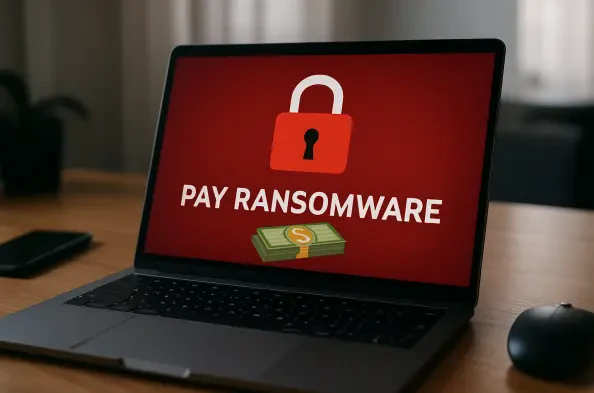Healthcare organizations are increasingly becoming targets for cyberattacks, resulting in significant breaches of sensitive information. In a recent incident, the Center for Vein Restoration (CVR), a prominent healthcare services company, experienced a major data breach that compromised the personal data of nearly half a million patients and employees. The breach, which was reported on December 5, 2024, has raised concerns about the effectiveness of current cybersecurity measures within the healthcare industry.
The Breach Details and Immediate Response
Detection and Containment
On October 6, 2024, the IT security team at CVR detected suspicious activity within its network, indicating a potential breach. Acting swiftly to mitigate any potential damage, CVR’s security team immediately took steps to secure their network, thus preventing further unauthorized access. Following these initial efforts, CVR promptly notified law enforcement authorities about the incident to ensure a thorough investigation. In addition, the company enlisted third-party forensics experts to conduct a comprehensive review of the breach and to ascertain the exact nature and extent of the compromised data.
The investigation revealed that the breach involved unauthorized access to sensitive and confidential information, including names, addresses, dates of birth, Social Security numbers, driver’s licenses, medical records, health insurance details, and financial and employment information. With a total of 446,094 individuals affected by the breach, the magnitude of the exposure became evident. This swift response by CVR highlights the importance of immediate and decisive action in the event of a cybersecurity incident to minimize potential harm.
Investigating and Notifying Impacted Individuals
Following the containment of the breach, CVR embarked on a detailed review of the compromised files to identify the specific information that had been leaked and determine which individuals were affected. This process involved painstakingly examining extensive records to ensure all breached data was accounted for. CVR has since taken the initiative to send data breach notification letters to the impacted individuals, providing detailed information on the compromised data and the potential risks involved.
The importance of transparency in handling such breaches cannot be overstated, as it ensures that affected individuals are fully informed and can take necessary steps to protect themselves from potential fraud or identity theft. CVR’s efforts to communicate directly with those impacted demonstrate a commitment to maintaining trust and providing support in the wake of the breach. However, this incident also underscores the urgent need for enhanced security protocols to prevent similar breaches in the future.
Broader Implications for Healthcare Security
Increasing Cybersecurity Threats in Healthcare
The CVR data breach is indicative of a broader trend where healthcare providers are becoming prime targets for cybercriminals due to the valuable nature of the data they hold. Cybersecurity breaches in the healthcare sector have been on the rise, driven by the growing sophistication of cyber threats and the lucrative potential for exploiting sensitive health information. This trend highlights the critical necessity for healthcare organizations to implement robust cybersecurity measures and continually update them to combat evolving threats.
The healthcare industry must recognize the unique risks it faces and prioritize investments in advanced security technologies, employee training programs, and stringent data protection policies. These measures can significantly reduce vulnerabilities and enhance an organization’s overall resilience to cyberattacks. Given the sensitive nature of healthcare data, which often includes detailed personal and medical information, the stakes are incredibly high in ensuring robust security protocols.
Legal and Financial Repercussions
The ramifications of the CVR data breach extend beyond immediate security concerns, as affected individuals may face potential risks of identity theft and fraud. Furthermore, healthcare institutions like CVR could encounter legal liabilities and financial repercussions stemming from such incidents. Affected individuals must be vigilant about monitoring their financial and personal information for unusual activity and seek legal advice to understand their options for protection and remediation.
For healthcare organizations, the financial impact of a data breach can be severe, encompassing regulatory fines, legal costs, and the expenses associated with breach mitigation and response efforts. Moreover, reputational damage can lead to a loss of patient trust and potential declines in business. Hence, this incident serves as a stark reminder of the importance of investing in comprehensive cybersecurity strategies that can protect sensitive data and mitigate the consequences of potential breaches.
Conclusion
Healthcare organizations are increasingly targeted by cyberattacks, leading to significant breaches of sensitive information. A recent incident involving the Center for Vein Restoration (CVR), a well-known healthcare services provider, underscored the severity of this issue. The data breach compromised the personal data of nearly 500,000 patients and employees. Reported on December 5, 2024, this breach has heightened concerns about the effectiveness of current cybersecurity measures within the healthcare industry.
The incident highlights vulnerabilities in the sector’s cybersecurity practices, raising questions about how patient and employee data is protected. Cybercriminals appear to be relentless, exploiting weaknesses in existing systems. It’s becoming evident that stronger safeguards are needed to prevent such breaches in the future. As healthcare organizations become more reliant on digital systems, ensuring robust cybersecurity becomes crucial. The CVR incident serves as a stark reminder that without significant improvements, personal information remains at considerable risk of being compromised.






